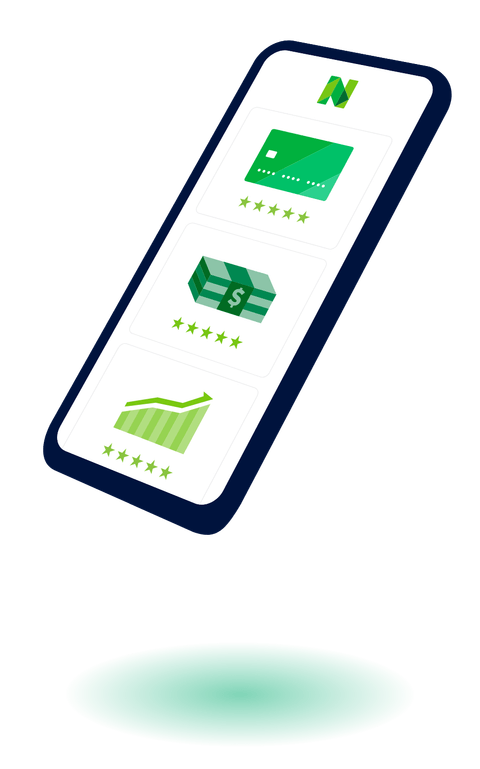How to Start a Business With a Friend: Key Dos and Don’ts
Starting a business with a friend could be a great decision. Here’s how to add best business practices to the mix.
Many, or all, of the products featured on this page are from our advertising partners who compensate us when you take certain actions on our website or click to take an action on their website. However, this does not influence our evaluations. Our opinions are our own. Here is a list of our partners and here's how we make money.
If you and your friend are both entrepreneurs (or aspiring entrepreneurs), brainstorming new business ideas is probably standard issue. And when you hit upon a really good business idea, you’ll want to take that entrepreneurial spirit off your friend’s living room couch and into the boardroom. That could be a great decision.
Be aware, though, that there’s a right way to go about starting a business with a friend — and a not-so-right way, too.
Starting a business is never an easy endeavor. And you might think that partnering up with your favorite person would mitigate some of that stress, or at least make it more fun. That can certainly be the case.
But starting a business with a friend means that your relationship changes. During working hours, you’ll need to interact with each other a little more formally than you would if you were just hanging out, especially if you’re co-helming a team of employees.
You’ll also need to make sure that your close personal connection doesn’t result in sloppy business practices. We asked a few entrepreneurs who’ve successfully mixed business and friendship to share their advice on what to do, and what not to do, when you’re starting a business with a friend.
How to start a business with a friend: What to do
First, we’ll cover the right stuff. If you’re thinking of starting a business with a friend, keep these tips in your back pocket:
Do communicate often.
Open communication is essential in any relationship, and business partnerships are no exception.
When you’re working with a friend, it’s easy to assume you’re automatically on the same page. After all, you know each other well.
But silence breeds confusion and confusion can lead to costly mistakes in business.
Josh Rubin, founder and CEO of Post Modern Marketing, understands the importance of maintaining clear channels of communication between you and your friends-turned-business partners.
"In a previous version of my company, I employed two of my best friends," Rubin says. "I trusted my friends, so I took their word for it when they said that they were staying on top of their roles. But, pretty soon, an IRS audit uncovered that my friend was paying themselves more money than we’d agreed upon, for hours they weren’t working. As a result, the relationship, and the business, were damaged beyond repair. So, my one big tip for anyone starting a business with friends is: Don’t start a business on promises alone."
Even though you innately trust your friends, you still need to communicate clearly about everything. Especially the difficult subjects.
Do establish clear roles from the beginning.
This tip follows naturally from the first: Clearly define your job titles and responsibilities at the outset of your venture. It’ll ensure that your organization runs smoothly, and it minimizes the risk of confusion, and even power struggles, as your business scales.
Bill Widmer, cofounder of The Wandering RV, learned the importance of job titles quickly after starting his business. While traveling in an RV for six months together, Widmer and his fiancée, Kayla, launched a website to keep their friends and family updated on their travels. Soon, the venture became popular, and their business was born.
Widmer says:
Once we hit the first page for one of our articles, that's when we realized we might have a real business opportunity on our hands. We continued to create search-friendly content and build links to it.
Once we hit the first page for one of our articles, that's when we realized we might have a real business opportunity on our hands. We continued to create search-friendly content and build links to it.
But at the beginning, Kayla and I didn't have any kind of defined roles. We were just ‘co-owners.’ She did a bunch of stuff and so did I. It worked for a while, but it caused a lot of stress between us. Now, she writes most of the content, and I'm the editor and marketer. She handles social media, I handle email. If something goes wrong, we know who's ‘fault’ it was, so that person can take responsibility and fix it.
» READ THIS: How to get a grant for a startup
Do get your business plan in writing.
Of all the varied advice our expert entrepreneurs gave us, writing a business plan was the common denominator.
Laying out a strategic map for the next one to five years of your business’s life is crucial for any venture. In fact, it might be a good idea to hire a business lawyer to help you draw up your plan.
One of those experts, Adam Cole, successfully co-directs Grant Park Academy of the Arts alongside his good friend. One of the keys to that success, Cole says, was getting everything down in writing. “We hired a lawyer and drafted an operating agreement,” Cole says. “It took some time, and the discussions could get a little uncomfortable as we contemplated what could go wrong between us or to our business. But now we have a plan to fall back on in case our relationship or our business changes.”
Clearly, creating an exit strategy is just as important as creating a business plan is. The failure of a business is tough, and it can wreak all kinds of havoc, not least of which is a potential rift between the founders. A formal exit plan corrals that chaos into order. And it ensures, as much as possible, that the failed business doesn’t ruin your friendship, as well.
After his previous experience, Josh Rubin firmly believes in the importance of a written agreement and an exit plan, both legally binding and otherwise.
“Get a lawyer, make sure everything is buttoned up, and have separation and buyout clauses that protect both parties,” Rubin suggests. “Within that agreement, write out everyone's job description, goals, and expectations, just like you would for any other employee. Then, hold each other accountable to following that business plan. It’s the only way you'll succeed as business partners and friends.”
Smart money moves for your business
Grow your small business with tailored insights, recommendations, and expert content.

Starting a business with a friend: What to avoid
It may seem pretty natural to think about going into business with a friend, but there are a few pitfalls you’ll need to be mindful of avoiding. Here’s what not to do if you want to keep your business — and your friendship — afloat.
Don’t start a business with a friend just because you like each other.
Of course, you and your best friend get along really well, but compatibility doesn’t always translate once you start running an office together.
This all ties back to that foundational do: Clear communication. Commit to that transparency even before you start your business. That way, you’ll make sure you’re starting that business with the right partner.
“If you think divorces are messy, business separations are equally devastating,” says Bret Bonnet, who co-founded Quality Logo Products® along with his best friend, Michael Wegner, when they were still in college.
And although these separations do happen, you of course don’t want it to happen to your business. You’ll need to do your due diligence on your partners beforehand — even if that partner is your college roommate/emergency contact/child’s godparent. “Make sure you know everything and anything about who you’re considering going into business with,” Bonnet advises. “Like in a marriage, the skeletons in their closet eventually become yours.”
So, how can you tell if you and your friend will make great business partners? Here’s a tip from Bill Widmer: “If you and your friend or partner can't communicate productively, or if every disagreement turns into a massive fight or argument, that person probably isn't a good fit as a business partner.”
» RELATED: Startup business ideas that could take off
Don’t make assumptions about each other’s goals for, and commitments to, your business.
Both parties need to be in total agreement about what they want their business to achieve. On top of that, Alex Moen, cofounder of Match Made Coffee, suggests that both parties need to be in alignment about prioritizing that business, too.
“I've experienced issues when friends didn't fully understand that starting a business requires a huge commitment,” Moen says. “They ended up leaving the business, and putting the remaining team in a precarious situation.
So, everyone needs to be clear on the required time commitment for both the short term and the long haul. From the outset, have a clear discussion about how many hours per week everyone can commit to, what your long-term milestones are, and how much sweat equity everyone needs to contribute to hit those goals.”
Don’t mix personal and business matters
Running a business with your best friend is a logistical and emotional balancing act. The core tenet of separating your personal and business finances is obviously applicable to your business, but you’ll need to clearly delineate your professional relationship from your personal relationship, too.
Says Moen, “Remember that whatever happens to your business has nothing to do with your friendship, and vice versa.”
To help you disentangle the personal and professional, keep in mind that the office is the office, and home is home. Your conversations with your best friend-slash-business partner should stay on their respective sides of that line: Use text and personal emails for personal matters, and your business emails for business matters.
Article sources
NerdWallet writers are subject matter authorities who use primary,
trustworthy sources to inform their work, including peer-reviewed
studies, government websites, academic research and interviews with
industry experts. All content is fact-checked for accuracy, timeliness
and relevance. You can learn more about NerdWallet's high
standards for journalism by reading our
editorial guidelines.
Related articles







